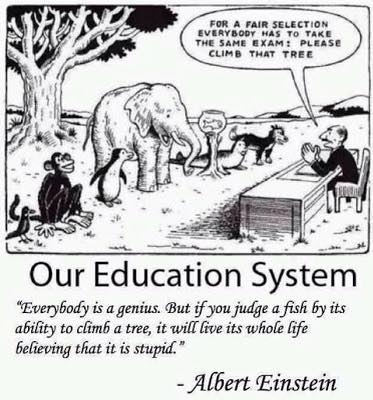|
Our understanding of intellectual and learning difficulties has come a long way in the last 100 years. We are now able to use comprehensive educational, academic and intellectual assessments to assist in identifying a child's or teenager's learning strengths and weaknesses. With the start of the school year just around the corner it can be helpful to consider where your child's learning is currently placed.
Child Psychologists and Adolescent Psychologists use a wide variety of research based assessment tools to investigate learning strengths and weaknesses. Intellectual ability, memory, concentration, attention and language processing are all factors which can impact on a student's performance in the classroom. An experienced Psychologist can help investigate these areas of a child's functioning and determine how to best meet their learning needs. Difficulties such as Developmental Dyslexia, Attention Deficit Hyperactivity Disorder (ADHD) and Intellectual Disability can all have a tremendous effect on a child's academic success. Comprehensive assessment by a Child Psychologist can assist in identifying such conditions, as well as helping parents and teacher to understand the needs of the individual. Raising awareness of these needs can be an important first step which allows tailored strategies and techniques to be implemented in the best interest of the individual. Gifted and Talented (GAT) students can also benefit from assessment by a Psychologist. Some individuals have unique intellectual strengths. By identifying their higher level of ability their curiosity and learning potential can be nurtured. Raising awareness of a Gifted student's abilities can help teachers and parents to provide intellectual stimulation in order to allow them to flourish. Some students may also be eligible for additional assistance or support at school. Learning assessments can help in determining a child's eligibility and guiding access to services. If you or a teacher have concerns about your child's performance at school please contact us and we would be happy to discuss your situation. We can provide advice on whether a learning assessment may be helpful for your unique circumstances. E: [email protected] P: 02 4929 2223 #ChildPsychologist #Newcastle #NewcastleNSW #LearningDisorder #Education Individuals with an Autism Spectrum Disorder (ASD) face many challenges in their life. They are born into the social world and are immediately confronted with experiences and sensations which can be overwhelming and confusing. However children and adolescents with ASD have many strengths. They experience the world in a unique and individual way. They can be excellent visual learners, very loyal friends and quite particular about following the rules.
ASD is estimated to affect 1 in 100 children and adolescents. Among other things, it is primarily characterised by difficulties understanding social relationships. What many of us take for granted as “common sense” can be confusing or illogical for someone with Autism. For example, it seems obvious to most people that we look at others when we talk to them. Most children don’t need to be taught this and it just happens without consequence. However children on the Autism Spectrum often need the social world explained to them in detail so they can understand the “nuts and bolts” of the situation. “We look at other people so they know we care” a parent might explain to their child with ASD. “It makes people feel happy when we look at them and smile” the parent may add. This helps the child understand the connection between the social action and the feelings of other people. Children with ASD are commonly identified when starting school however the signs are often present from a young age. Sensory concerns, difficulties coping with change, repetitive behaviours and extreme emotional outbursts can also be indicative of the condition. Of course, not every child with social difficulties has ASD. Just like other aspects of child development (e.g. language, motor skills, cognition) social skills also develop at different paces in different children. It can be helpful to talk to a Child & Adolescent Psychologist if you or others have ongoing concerns regarding your child. This can help identify what is expected at your child’s developmental level. After all, early identification and assistance can lead to better outcomes for many childhood conditions. #ChildPsychologist #ASD #Autism #Newcastle #NewcastleNSW #Psychologist It is nearly that time of year again when children are returning to school after the end of year break and for some children they will be starting Kindergarten for the first time. Whether new to school or returning, children are faced with a lot of changes and excitement as their journey in life continuves.
It is natural for children to become upset and worried at times when they are separated from their caregivers or when encountering unfamiliar people. This is a helpful emotion as our children are considering their own safety and are aware of potential situations. This allows them to explore their world with care. However, such anxiety can be problematic when it is overly distressing for a child or if it limits their safe exploration of their environment. For example, remaining distressed for extended periods of time or avoiding school can cause ongoing problems. It is important to encourage engagement and independent curiosity and exploration in safe environments such as school. To help your child feel comfortable in situations where they should feel safe, such as school, try the following techniques:
Give your child the best start to the year! Contact us if you have more questions about Separation Anxiety: [email protected] #SeparationAnxiety, #NewcastleNSW, #Newcastle, #ChildPsychologist, #ChildPsychology Not every child is the same and each have their own unique strengths and weaknesses. It's important to help children find their strengths, understand that each individual is different and that these differences make us special.
Praise children for what they love and encourage family and friends to support them in what they are good at. Self-esteem is the way we perceive ourselves and what value we place on our own qualities. This begins with what our parents teach us about our own individuality. Emphasise a range of values and don't just focus on one aspect of a child's development. While academics are very important, there is a lot more to life! Of course, education is a key part of a child's life and if your child is struggling it's important to identify their needs. Talking with the school and classroom teacher can be an important first step if you have concerns. School's have support staff such as School Counsellors and Learning Support Teams who can help address such concerns. A Child & Adolescent Psychologist can also be helpful to provide insight into your child's individual academic, emotional and social development. After-all, each child is different and knowing how to help is key! #differencesmakeusspecial, #childpsychologist, #newcastlensw, #newcastle Imagine going to work everyday and having to complete tasks much more complex than you could cope with. This is what it can be like for many Dyslexics in a world full of writing.
Dyslexia is an often misunderstood condition which affects 5-15% of individuals. More accurately Dyslexia is a Specific Reading Disorder, meaning that people with this disability have unique weakness in literacy. They are often of average to above average intelligence but struggle with understanding the written world. Like everyone, individuals with Dyslexia can have many other strengths and it's important to identify and encourage these. Children with Dyslexia are often identified at a Primary School age due to difficulties learning sounds, identifying letters and remembering sight words. Such children find reading very tiresome, slow and as a result may struggle to understand what they have read once they finish reading. Many people incorrectly believe that Dyslexia is due to a visual deficit, which requires coloured lenses to be corrected. However in most instances this is not the case. In fact Dyslexia is primarily due to Phonological (speech sound) Processing weaknesses in most cases. This means that Dyslexics are not able to process the sounds in words as efficiently as everyone else. These sound processing weaknesses make it difficult to group sounds in words and link sounds and letters together (phonics). While Dyslexia is generally a life long condition, fortunately early identification opens many doors for assistance. Diagnosis by a Child Psychologist experienced in the assessment of learning disorders can be an important first step. This allows children to get the best start possible by accessing appropriate interventions, increasing the awareness of teachers and gaining assistance. #Dyslexia #Newcastle #Newcastlensw #Childpsychologist |
AuthorChild Psychologist Daniel Wendt is the Principal Clinical Psychologist of Oracle Psychology in Newcastle, NSW. Archives
August 2023
Categories
All
|
- Home
- New Clients
-
Psychological Services
-
Our Child Psychologists
- Candice Byrnes, Child Psychologist
- Claire Mortimer, Senior Clinical Psychologist
- Dan McAlpine, Senior Psychologist
- Daniel Wendt, Principal Clinical Psychologist
- Eliza Skelton, Clinical Psychologist
- Julia Macris, Child Psychologist
- Kane Becker, Child Psychologist
- Kate Purcell, Child Psychologist
- Kerri Corkill, Clinical Psychologist
- Liam O'Dell , Child Psychologist
- Lucy Rosser, Child Psychologist
- Madeline Cordingley, Clinical Psychologist
- Madeline Guinane, Child Psychologist
- Madeleine Patience , Child Psychologist
- Merel Van Emmerik, Child Psychologist
- Travis Boehm, Child Psychologist
- Zoe Guider, Clinical Psychologist
- Frances Fay, Behaviour Support Pracitioner
- Lauren Saunders, Behaviour Support Pracitioner
- Fees & Rebates
- Contact Us
- Psychologist Articles
- Multidisciplinary Referrals
|
Oracle Psychology Pty Ltd
19 Bolton Street, Suite 6, Level 1, Newcastle, NSW, 2300 P: 02 4929 2223 F: 02 4929 3637 E: [email protected] ABN: 4716 427 5709 ACN: 164 275 709 |





 RSS Feed
RSS Feed





